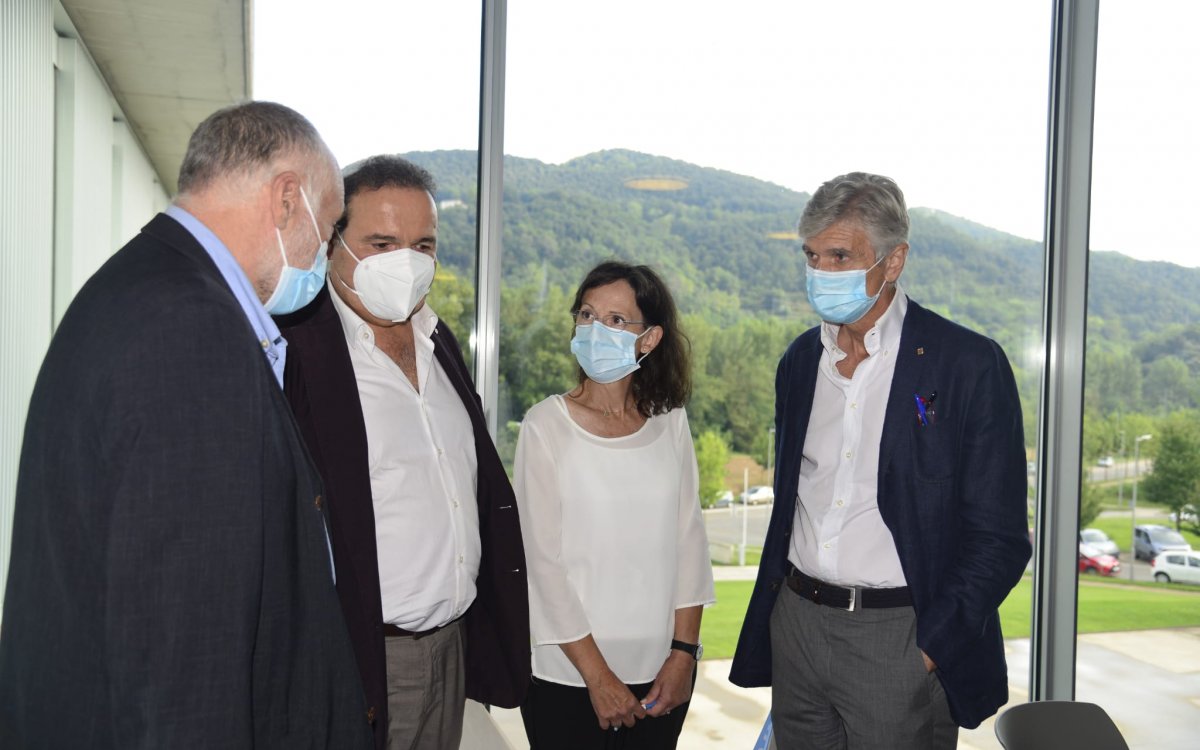Catalonia releases the new Suicide Prevention Plan (PLAPRESC) for 2021-2025
The Department of Health launched on September 9th, the Suicide Prevention Plan of Catalonia 2021-2025 (PLAPRESC), in which more than 300 professionals from different professional fields have participated. The PLAPRESC is coordinated by Dr. Diego Palau, one of the principal investigators of the Codi Risc project and director of the Mental Health Department of Parc Taulí University Hospital in Sabadell.
Following the World Health Organisation guidelines, the experience acquired with the Suicide Risk Code program in Catalonia and the scientific research evidence, the main aim of PLAPRESC is to reduce the incidence and impact of suicidal behaviour (suicidal ideation, suicide attempts and deaths) in order to reduce the risk of suicide attempts and deaths by suicide) in 15% by the year 2030, through a comprehensive, multisectoral and community-based approach, which takes into account the gender perspective and specified priority groups (including survivors of suicide attempts, the elderly, people with chronic diseases, disability and/or pain).
The specific goals of the PLAPRESC are: improve the detection of suicidal behaviour in any health service, but especially in primary care services; integrate health and social care services; strengthen the epidemiological surveillance system of suicidal behaviour in Catalonia; act on accessibility and attractiveness of the suicide attempt means (substances, medicines, firearms, architectural structures, etc.); promote prevention by the health care and social care services; promote prevention through social media; as well as raising awareness and training the population to prevent, detect in time, and deal with cases of suicide risk or loss of a loved one; and legal, social and clinical support for people affected by suicidal behaviour of a loved one.
The PLAPRESC, with the message/hashtag "I choose life", is based on 6 strategic áreas that involves the intervention and coordination of different departments of the Generalitat de Catalunya, such as the Department of health, Justice, Education, among others: (1) universal, selective, indicated and structural suicide prevention; (2) detection, access, emergency care, treatment, recovery and support processes in suicide attempt cases; (3) postvention and support for the family and other survivors; (4) patient safety and suicide prevention; (5) support for information and knowledge management and epidemiological surveillance; (6) and governance, deployment of the Plan and accountability.
In relation to the Catalonia Suicide Risk Code (CSRC) programme, a suicidal behaviour surveillance protocol implemented in Catalonia since 2014, the PLAPRESC expands the activation points (until this, in hospital emergency departments) and the programme quality, by: (1) the implementation evaluation in the territory and the identification and management of the barriers/facilitators of implementation; (2) the review and adaptation to evidence-based practices of the CRS program procedures in the hospital emergency departments and other non-mental health services; (3) the activation of suicide risk detection strategies from any healthcare and social services; (4) the introduction of the domestic and gender-based violence and non-suicidal self-harm assessment in the suicide risk clinical interview; (5) the standardisation of the criteria for the activation of the CRS and episodes registration; (6) the training of mental health professionals, 061 and primary care services in the CRS activation; (7) the introduction of prisons and drug addiction care centres into the CRS care circuit.
The PLAPRESC 2021-2025 is available here: https://salutweb.gencat.cat/web/.content/_ambits-actuacio/Linies-dactuacio/Estrategies-de-salut/Salut-mental-addiccions/Pla-director/Pla-de-prevencio-del-suicidi-de-Catalunya-2021-2025.pdf
